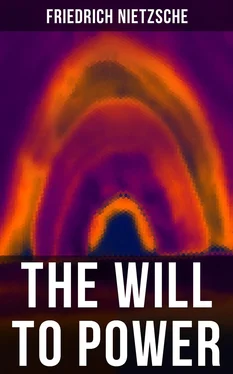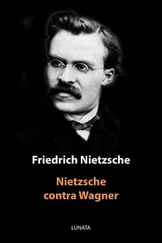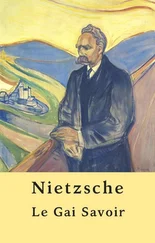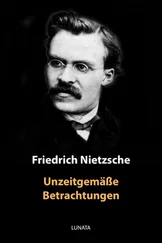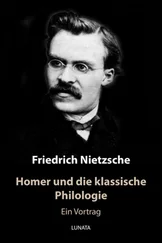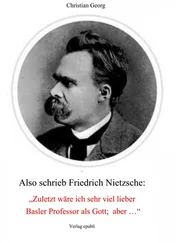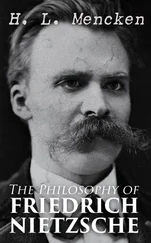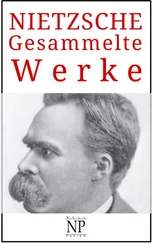" Pour 'la canaille' un dieu rémunérateur et vengeur "—Voltaire.
The criticism of both standpoints in regard to the value of civilisation. To Voltaire nothing seems finer than the social invention : there is no higher goal than to uphold and perfect it. L'honnêteté consists precisely in respecting social usage; virtue in a certain obedience towards various necessary "prejudices" which favour the maintenance of society. Missionary of Culture, aristocrat, representative of the triumphant and ruling classes and their values. But Rousseau remained a plebeian, even as hommes de lettres, this was preposterous ; his shameless contempt for everything that was not himself.
The morbid feature in Rousseau is the one which happens to have been most admired and imitated. (Lord Byron resembled him somewhat, he too screwed himself up to sublime attitudes and to revengeful rage—a sign of vulgarity; later on, when Venice restored his equilibrium, he understood what alleviates most and does the most good ... l'insouciance .)
In spite of his antecedents, Rousseau is proud of himself; but he is incensed if he is reminded of his origin....
In Rousseau there was undoubtedly some brain trouble; in Voltaire—rare health and lightsomeness. The revengefulness of the sick ; his periods of insanity as also those of his contempt of man, and of his mistrust.
Rousseau's defence of Providence (against Voltaire's Pessimism): he had need of God in order to be able to curse society and civilisation; everything must be good per se, because God had created it; man alone has corrupted man. The "good man" as a man of Nature was pure fantasy; but with the dogma of God's authorship he became something probable and even not devoid of foundation.
Romanticism à la Rousseau : passion ("the sovereign right of passion"); "naturalness"; the fascination of madness (foolishness reckoned as greatness); the senseless vanity of the weak; the revengefulness of the masses elevated to the position of justice ("in politics, for one hundred years, the leader has always been this invalid").
101.
Kant : makes the scepticism of Englishmen, in regard to the theory of knowledge, possible for Germans.
(1) By enlisting in its cause the interest of the German's religious and moral needs: just as the new academicians used scepticism for the same reasons, as a preparation for Platonism ( vide Augustine); just as Pascal even used moral scepticism in order to provoke (to justify) the need of belief;
(2) By complicating and entangling it with scholastic flourishes in view of making it more acceptable to the German's scientific taste in form (for Locke and Hume, alone, were too illuminating, too clear—that is to say, judged according to the German valuing instinct, "too superficial").
Kant : a poor psychologist and mediocre judge of human nature, made hopeless mistakes in regard to great historical values (the French Revolution); a moral fanatic à la Rousseau; with a subterranean current of Christian values; a thorough dogmatist, but bored to extinction by this tendency, to the extent of wishing to tyrannise over it, but quickly tired, even of 'scepticism; and not yet affected by any cosmopolitan thought or antique beauty ... a dawdler and a go-between, not at all original (like Leibnitz, something between mechanism and spiritualism; like Goethe, something between the taste of the eighteenth century and that of the "historical sense" [which is essentially a sense of exoticism]; like German music, between French and Italian music; like Charles the Great, who mediated and built bridges between the Roman Empire and Nationalism—a dawdler par excellence ).
102.
In what respect have the Christian centuries with their Pessimism been stronger centuries than the eighteenth—and how do they correspond with the tragic age of the Greeks?
The nineteenth century versus the eighteenth. How was it an heir?—how was it a step backwards from the latter? (more lacking in "spirit" and in taste)—how did it show an advance on the latter? (more gloomy, more realistic, stronger ).
103.
How can we explain the fact that we feel something in common with the Campagna romana? And the high mountain chain?
Chateaubriand in a letter to M. de Fontanes in 1803 writes his first impression of the Campagna romana.
The President de Brosses says of the Campagna romana : "Il fallait que Romulus fût ivre quand il songea à bâtir une ville dans un terrain aussi laid."
Even Delacroix would have nothing to do with Rome, it frightened him. He loved Venice, just as Shakespeare, Byron, and Georges Sand did. Théophile Gautier's and Richard Wagner's dislike of Rome must not be forgotten.
Lamartine has the language for Sorrento and Posilippo.
Victor Hugo raves about Spain, "parce que aucune autre nation n'a moins emprunté à l'antiquité, parce qu'elle n'a subi aucune influence classique."
104.
The two great attempts that were made to overcome the eighteenth century:
Napoleon, in that he called man, the soldier, and the great struggle for power, to life again, and conceived Europe as a political power.
Goethe, in that he imagined a European culture which would consist of the whole heritage of what humanity had attained to up to his time.
German culture in this century inspires mistrust—the music of the period lacks that complete element which liberates and binds as well, to wit—Goethe.
The pre-eminence of music in the romanticists of 1830 and 1840. Delacroix. Ingres—a passionate musician (admired Gluck, Haydn, Beethoven, Mozart), said to his pupils in Rome: "Si je pouvais vous rendre tous musiciens, vous y gagneriez comme peintres"—likewise Horace Vernet, who was particularly fond of Don Juan (as Mendelssohn assures us, 1831); Stendhal, too, who says of himself: "Combien de lieues ne ferais-je pas à pied, et à combien de jours de prison ne me soumetterais-je pas pour entendre Don Juan ou le Matrimonio segreto ; et je ne sais pour quelle autre chose je ferais cet effort." He was then fifty-six years old.
The borrowed forms, for instance: Brahms as a typical "Epigone," likewise Mendelssohn's cultured Protestantism (a former "soul" is turned into poetry posthumously ...)
—the moral and poetical substitutions in Wagner, who used one art as a stop-gap to make up for what another lacked.
—the "historical sense," inspiration derived from poems, sagas.
—that characteristic transformation of which G. Flaubert is the most striking example among Frenchmen, and Richard Wagner the most striking example among Germans, shows how the romantic belief in love and the future changes into a longing for nonentity in 1830-50.
106.
How is it that German music reaches its culminating point in the age of German romanticism? How is it that German music lacks Goethe? On the other hand, how much Schiller, or more exactly, how much "Thekla" 5is there not in Beethoven!
Schumann has Eichendorff, Uhland, Heine, Hoffman, Tieck, in him. Richard Wagner has Freischütz, Hoffmann, Grimm, the romantic Saga, the mystic Catholicism of instinct, symbolism, "the free-spiritedness of passion" (Rousseau's intention). The Flying Dutchman savours of France, where le ténébreux (1830) was the type of the seducer.
The cult of music, the revolutionary romanticism of form. Wagner synthesises German and French romanticism.
Читать дальше
